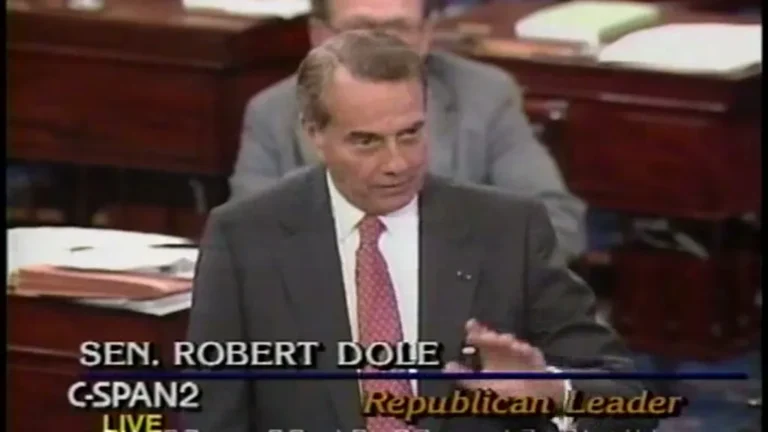A moment in our history that deserves more appreciation was the approval for the first time of a fund for Kosovo in the US Foreign Aid budget.
Before NATO’s military intervention came, before the “American Office” came to Pristina, before the strong commitment of diplomacy to a solution in Kosovo came, this was the first investment of American taxpayers for peace and democracy in Kosovo.
The inclusion of Kosovo in the budget was the first transition from statements to real actions. The package, while relatively modest compared to total US foreign aid, was of great symbolic power.
On the international level, it marked the internationalization of the Kosovo issue. Until that time, Belgrade could boast that Kosovo remained an internal issue of Yugoslavia, if not of Serbia. Its independence was not recognized like that of other republics. Statements by several American lawmakers were at odds with Yugoslavia’s responses. However, this direct aid, from the American Congress, which bypassed Belgrade, Yugoslavia, and Serbia, and went to the hands of the Albanians of Kosovo, was indisputable evidence of Kosovo as a separate entity, which could self-administer aid, just as it could to be self-governing one day, in the future.
Politically, it was Congress’s challenge to the White House’s reluctance to handle Kosovo outside of Belgrade’s authority. After it had belatedly recognized the independent former Yugoslav republics, the Old Bush Administration had deliberately left Kosovo out, with the argument that it would give Serbia a “bone” as well as not to encourage a new hotbed of fire in Kosovo, in a time when war had broken out in Bosnia. In Congress, this policy was severely criticized by friends of the Albanians, who now knew the situation in Kosovo well and saw the Bush Administration’s excessive caution as an encouragement to Milosevic in Belgrade.
Republican Senators Bob Dole and Claiborne Pell introduced a joint amendment calling for $20 million for Bosnia and $5 million for Kosovo. Dole argued that Albanians in Kosovo were suffering from hunger and cold, while a very harsh winter was approaching.
This aid package was loaded with strong political and historical symbolism, in addition to practical value: the people of Kosovo at that time were really on the edge of survival, the Serbian state refused them basic services of health, education, and social assistance – while the Albanians the conquerors defied reality with their extraordinary parallel system.
Senator Pell did not hide the political symbolism of this aid.
“In order to help Kosovo, we send a strong message to the Serbian government that ethnic cleansing is unacceptable in Kosovo, as well as in Bosnia-Herzegovina”.
This was not just a merciful handout. It was an investment of the American people for the cause of Kosovo.
The White House might be in control of diplomacy, but the budget was in the hands of Congress. While the Bush Administration was reluctant to engage in Kosovo, Congress anchored American engagement through direct aid.
Dole and Pell were supported by their colleagues from both parties, with whom the Albanians had worked closely in those years. Among these were Joseph Lieberman, Alphonse D’Amato, Larry Pressler, Dennis De Concini, Don Nickles, etc.
In the House of Representatives, the new friends of the Albanians, congressmen Tom Lantos, Eliot Engel, Susan Molinari, etc., acted in support of aid for Kosovo.
On the evening of October 1, the Dole-Pell Amendment was approved to the great joy of the Albanian-Americans, who were following these developments with great concern. On October 5, both houses of Congress agreed on the final form of Foreign Aid that was sent to President Bush for signature.
The developments were followed with passion by the Albanian-Americans, in the pages of the “Illyria” newspaper. Journalists Sylejman Gashi and Deborah Angus reported on the events in Washington. Prof. Sami Repishti with his writings put these developments in perspective, appreciating the fact that the Congress was treating Kosovo “as a separate territorial and political unit and not as part of Serbia”.
In his writing on this occasion, Prof. Sami Repishti gives credit for this great achievement to the Albanian-American Political Action Committee (PAC) “and especially to the intensive work by Mr. Jim Xhema (chairman), Mr. Harry Bakrajtari (Secretary), who have spent long working days in Washington, keeping in constant contact with American legislators and their aides.”
PAC was short for campaign finance committees created to comply with new US election finance legislation. Albanian-Americans adapted to this new form immediately.
This was also a period of debate in the Albanian community about how and who should represent the Albanian lobby in Washington.
In this period AAPAC had emerged as the main force and in his writing Prof. Repishti thanked the brothers and sisters around the United States who had contributed financially to the Committee. In particular, he thanked the Democratic League of Kosovo – for Trishtetesh and its chairman at the time, Rrustem Ibraj.








